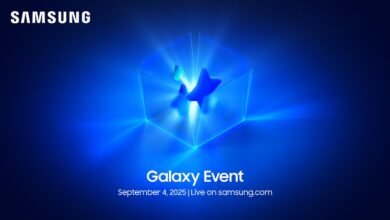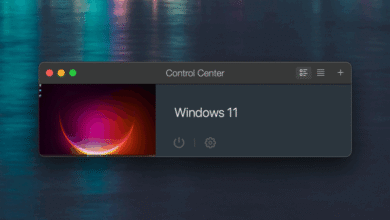Game Over?: Ex-Microsoft Whiz Declares Xbox Finished

Style With No Substance: Microsoft Veteran Says Xbox Is ‘Dead’
The video gaming landscape is constantly evolving, with new technologies and innovative gaming experiences sprouting every year. However, a recent proclamation by a former Microsoft developer has cast a shadow over the future of Xbox, the tech giant’s dedicated gaming brand. The claim? That Xbox is ‘dead’ and lacks a compelling future. This stark statement raises profound discussions about the direction of console gaming, particularly in the face of advancing technologies and shifting consumer behaviors.
The Voice from Within Microsoft
One of the most notable aspects of this announcement comes from a respected figure within Microsoft itself—someone who has intimate knowledge of the company’s operations and visions. Their assertion is not merely an echo but carries weight due to their background and insider perspective. Their declaration that Xbox is no longer relevant provokes questions about the business strategy of Microsoft in the ever-competitive gaming market.
The Rise and Fall of Xbox
Xbox has been a significant player in the gaming world since its inception in 2001. It brought forth groundbreaking consoles, such as the Xbox 360, which expanded the boundaries of online multiplayer gaming, and the Xbox One, which introduced a series of multimedia features aimed at making it a central hub for entertainment. However, despite the innovations, the gaming community has voiced concerns over the brand’s trajectory.
The narrative of closure isn’t new. Many have speculated about the faltering enthusiasm surrounding Xbox consoles, especially when looking at sales figures and market competition. Sony’s PlayStation has consistently dominated in terms of console sales and exclusive game offerings, leading to a growing sentiment that Xbox has fallen behind in terms of consumer interest and engagement.
The Impact of Game Pass
One particular point of contention that has arisen from the former developer’s remarks is the perception of Xbox Game Pass. While it’s been praised for providing tremendous value to subscribers, the former employee contends that it reflects a lackluster approach to creating a captivating gaming ecosystem. Rather than relying on exclusive titles and innovative gameplay experiences, Xbox might be leaning too heavily on subscription services, which some players argue lacks the personal connection to a gaming brand that is often cultivated through high-quality games.
This observation is not unfounded. As the gaming industry shifts towards subscription services—a trend seen across various sectors—they risk adopting a one-size-fits-all strategy that could potentially alienate core fans who search for unique and varied gaming experiences. Such sentiments echo broader critiques of gaming companies that prioritize profits over quality.
Cloud Gaming and its Discontents
The rise of cloud gaming presents another challenge. Enthusiasts may argue that offering games through the cloud is the future; however, the former Microsoft developer’s commentary suggests that Xbox has not fully harnessed its potential. Although companies like Google Stadia have stumbled, indicating that the market is still finding its footing regarding cloud-based gaming, Xbox seems to be approaching this medium with caution rather than bold innovation.
For many gamers, playing high-fidelity titles on a console equipped with the latest hardware is still the preferred method. The uncertainty surrounding internet reliability, latency issues, and the overall gaming experience deter a significant portion of the gaming community from fully embracing cloud options. This brings forth a query: Has Microsoft effectively redirected its focus away from creating an engaging console to prioritizing cloud solutions that may not resonate with its core audience?
The Future of Consoles
Amid such discussions about Xbox’s current status, it’s vital to ponder the entire console business model. The former Microsoft’s developer’s claim that Xbox has no future consoles strongly challenges the traditional gaming model. With each iteration of consoles, the technology continues to advance, raising questions about how necessary new consoles are in a rapidly changing digital landscape.
If Microsoft were to completely redefine its approach to gaming, would it forego traditional consoles altogether? This hypothetical scenario may sound far-fetched to some, but in the context of rapid technological adoption and changing consumer preferences, it becomes a relevant discourse. As players increasingly engage with games via smartphones, tablets, and streaming services, the viability of cutting-edge consoles faces scrutiny.
Community Reactions
The gaming community has reacted passionately to the former Microsoft developer’s statements. While some express agreement, claiming that Xbox’s path appears misguided, others vehemently defend the brand, pointing to moments of creativity, like the launch of compelling titles and advancements in online gaming capabilities. Players have expressed their thoughts across various platforms, igniting discussions of nostalgia, brand loyalty, and the importance of innovation in a space that thrives on new experiences.
In the eyes of these mixed reactions, it’s clear that Xbox has a devoted following that still sees hope for the brand despite prevailing criticisms. The sentiment that a gaming ecosystem should be rooted in quality experiences versus merely consumer availability resonates loudly among many gamers. Therefore, the challenge lies in finding a balance and responding to the diverse desires of the gaming audience.
A Call for Innovation
Ultimately, what the gaming community desires is an innovative platform that not only prioritizes new game releases but also embraces unique storytelling, immersive gameplay, and a vibrant multiplayer environment. The former Microsoft developer’s remark may serve as a wake-up call for Xbox executives to revisit their strategies and recognize that consumers today expect more than just a subscription service.
Moving forward, a commitment to producing exclusive titles, pushing boundaries within gaming technology, and fostering community-driven experiences could help revitalize Xbox. The gaming landscape is filled with possibilities, and Microsoft has a distinct opportunity to transform its narrative from one of stagnation to one of renewal and promise.
Conclusion
While the proclamation from the former Microsoft developer regarding the death of Xbox may feel alarming, it can also be seen as a pivotal inflection point. In the face of challenges, Microsoft has a chance to reflect on its strategies and make crucial changes to ensure that Xbox remains relevant and appealing within the gaming community. As gamers continue to evolve, so too must the platforms that serve them.
- Former Microsoft developer claims Xbox is ‘dead’ and lacks future potential.
- Criticism stems from reliance on subscription services versus exclusive titles.
- Concerns over cloud gaming and its impact on traditional console engagement.
- Community reactions are mixed with calls for innovation and quality experiences.
- Opportunity exists for Microsoft to recalibrate and revitalize Xbox’s gaming ecosystem.





